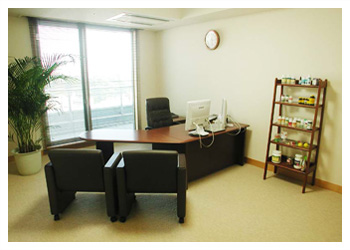Concept
Cancer is the ultimate aging process
What phenomenon is aging indicative of ?
There are many different ways to understand the aging process, but let’s consider it at the genetic level, which will enable us to identify a new approach to cancer.
Aging is the deterioration of the body’s capacity to copy genes
If you photocopy a sheet of paper that is itself already a photocopy, then do it again, the words become blurry and illegible as the process is repeated and the 30th copy is made. Not even the newest model photocopier will change this outcome.
Humans are comprised of 60 trillion cells and in each of these are 20 thousand or so genes. Everyday, these genes are copied again and again somewhere in the body. This happens throughout the span of one’s life, making the number of copies made in a lifetime quite substantial. Even if a gene is damaged through, for example, oxidization or a virus, it is perfectly repaired then accurately copied. The precision by which this is executed bears no comparison to a photocopier.
Aging, however, creates deterioration in the body’s capacity to make these copies. Cancer results when errors occur in the copying process, activating cancer cells or inactivating tumor-suppressor genes.
Aging is the deterioration of the on/off switch of our genes

As stated above, the human body is made up of 60 trillion cells and in each of these are 20 thousand or so genes that are perfectly aligned in the exact same order. How do these cells with the same genetic sequence alignment come to have the properties of the liver or skin, depending on where they are located? This occurs because there is a function in the body that controls the on/off switch of each of our 20 thousand or so genes, to ensure that the corresponding ones are engaged when necessary. The capacity to control DNA at this high level is called “epigenetics.”
Aging is the cause of epigenetic abnormalities. That is, aging leads to the on/off switch of our genes to fail, causing cancer - a disease that becomes more common with age. Our clinic offers treatments that encourage this function to work, targeting the genes involved in the growth, metastasis, apoptosis and angiogenesis of cancer cells, as well as promoting epigenetic changes (antineoplaston therapy).
Basic Information about the Clinic
| Address | 8-1 Sanban-cho, Sanbancho Tokyu Apartment #1101, Chiyoda-ku, Tokyo, 102-0075, Japan(Map) e-mail:info@kenko.org |
|---|---|
| Clinic Director | Masakazu Sawanobori, M.D. |
| Specialties | Oncology Intravenous Therapy Anti-Aging Internal Medicine Medical Advising Concerning Use of Supplements General Internal Medicine ※This clinic doesn’t accept insurance. |
| Hours | [Monday, Tuesday, Wednesday, Friday] 10:00-18:00 (Last appointment 16:30) [Thursday] 10:00-21:00 (Last Appointment 19:30) |
| Clinic Closed | Saturday, Sunday. Japanese National Holidays |









